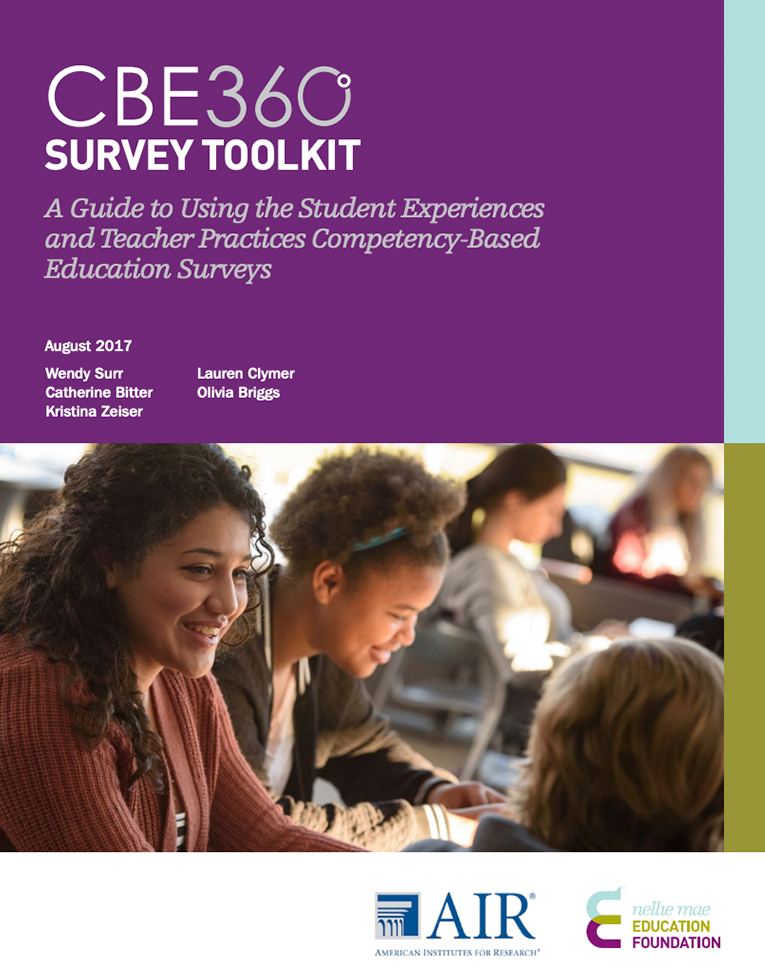CBE 360 Survey Toolkit
September 07, 2027
AMERICAN INSTITUTES FOR RESEARCH (AIR)
Competency-based education allows students to master skills and knowledge at their own pace, and has been gaining popularity nationwide as teachers seek ways to ensure that every student is well prepared for college and career. The CBE 360 Survey Toolkit, developed by American Institutes for Research (AIR), uses surveys from a recent AIR CBE study to provide a comprehensive picture of CBE implementation in six research-based core areas: learning targets, measurement of learning, instructional approaches, and supports, assessment of learning, pacing and progression, and when and where learning takes place.
The CBE 360 Survey Toolkit includes:
- CBE Survey User Guide: A user-friendly guide on administering or adapting the surveys, exploring results, and interpreting and using your findings.
- Toolkit Checklist: A checklist to confirm that you’ve taken all five steps necessary to prepare for survey administration.
- Student CBE Experiences (SCE) Survey: A 20-minute survey designed for middle or high school students that include questions regarding CBE-related experiences in school.
- Teacher CBE Practices (TCP) Survey: A 20-minute survey designed for academic teaching staff that includes questions on CBE-related practices across all of their courses, schoolwide policies and practices, and more in-depth questions about CBE-related practices in one selected course.
- Surveys Construct Map: A map specifying which survey items and item sets are aligned with each of the six CBE feature areas to help customize surveys for local needs.
- Consent Guidance and Sample Parent/Guardian Consent Form: Example consent forms that can be modified to align with your district or school’s requirements.
- Survey Administration Instructions: Guidelines to help you plan for survey administration including instructions and scripts to ensure a consistent and efficient administration process.
- Technical Appendix: A resource that provides the technical properties for the surveys and details regarding survey development and testing.
As students work toward achieving competency at their own pace, they typically experience higher expectations for their learning coupled with more individualized support, greater autonomy, flexibility, responsibility, and a clearer sense of their learning goals. Research suggests that these types of classroom conditions are associated with increased student engagement, motivation, self-efficacy, and other learning capacities that help predict academic success.

